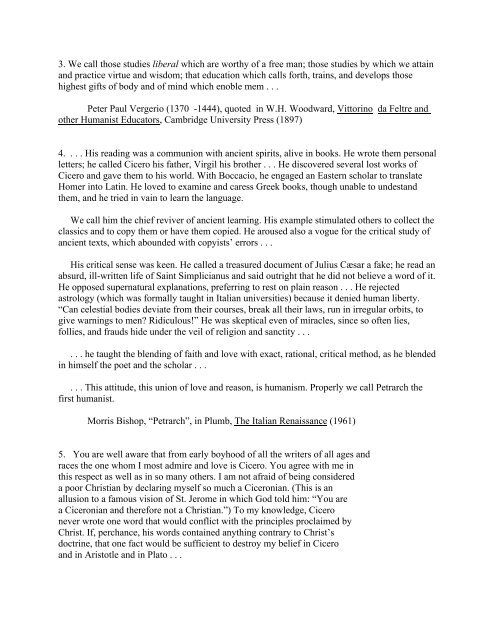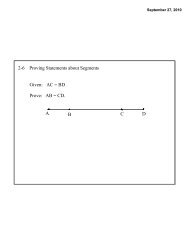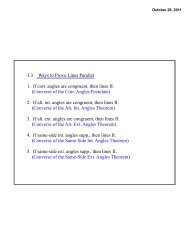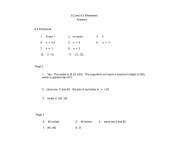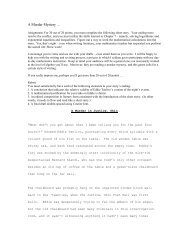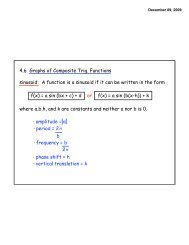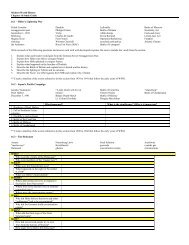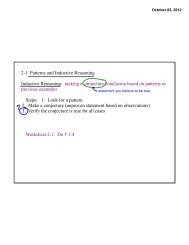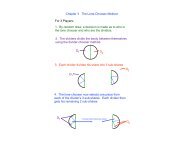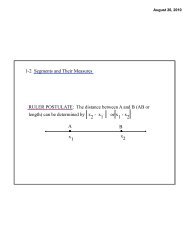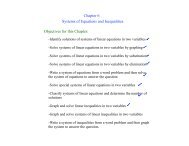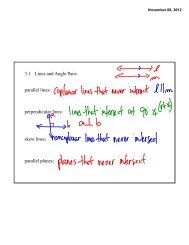DOCUMENTS: THE ITALIAN RENAISSANCE
DOCUMENTS: THE ITALIAN RENAISSANCE
DOCUMENTS: THE ITALIAN RENAISSANCE
Create successful ePaper yourself
Turn your PDF publications into a flip-book with our unique Google optimized e-Paper software.
3. We call those studies liberal which are worthy of a free man; those studies by which we attain<br />
and practice virtue and wisdom; that education which calls forth, trains, and develops those<br />
highest gifts of body and of mind which enoble mem . . .<br />
Peter Paul Vergerio (1370 -1444), quoted in W.H. Woodward, Vittorino da Feltre and<br />
other Humanist Educators, Cambridge University Press (1897)<br />
4. . . . His reading was a communion with ancient spirits, alive in books. He wrote them personal<br />
letters; he called Cicero his father, Virgil his brother . . . He discovered several lost works of<br />
Cicero and gave them to his world. With Boccacio, he engaged an Eastern scholar to translate<br />
Homer into Latin. He loved to examine and caress Greek books, though unable to undestand<br />
them, and he tried in vain to learn the language.<br />
We call him the chief reviver of ancient learning. His example stimulated others to collect the<br />
classics and to copy them or have them copied. He aroused also a vogue for the critical study of<br />
ancient texts, which abounded with copyists’ errors . . .<br />
His critical sense was keen. He called a treasured document of Julius Cæsar a fake; he read an<br />
absurd, ill-written life of Saint Simplicianus and said outright that he did not believe a word of it.<br />
He opposed supernatural explanations, preferring to rest on plain reason . . . He rejected<br />
astrology (which was formally taught in Italian universities) because it denied human liberty.<br />
“Can celestial bodies deviate from their courses, break all their laws, run in irregular orbits, to<br />
give warnings to men Ridiculous!” He was skeptical even of miracles, since so often lies,<br />
follies, and frauds hide under the veil of religion and sanctity . . .<br />
. . . he taught the blending of faith and love with exact, rational, critical method, as he blended<br />
in himself the poet and the scholar . . .<br />
. . . This attitude, this union of love and reason, is humanism. Properly we call Petrarch the<br />
first humanist.<br />
Morris Bishop, “Petrarch”, in Plumb, The Italian Renaissance (1961)<br />
5. You are well aware that from early boyhood of all the writers of all ages and<br />
races the one whom I most admire and love is Cicero. You agree with me in<br />
this respect as well as in so many others. I am not afraid of being considered<br />
a poor Christian by declaring myself so much a Ciceronian. (This is an<br />
allusion to a famous vision of St. Jerome in which God told him: “You are<br />
a Ciceronian and therefore not a Christian.”) To my knowledge, Cicero<br />
never wrote one word that would conflict with the principles proclaimed by<br />
Christ. If, perchance, his words contained anything contrary to Christ’s<br />
doctrine, that one fact would be sufficient to destroy my belief in Cicero<br />
and in Aristotle and in Plato . . .


